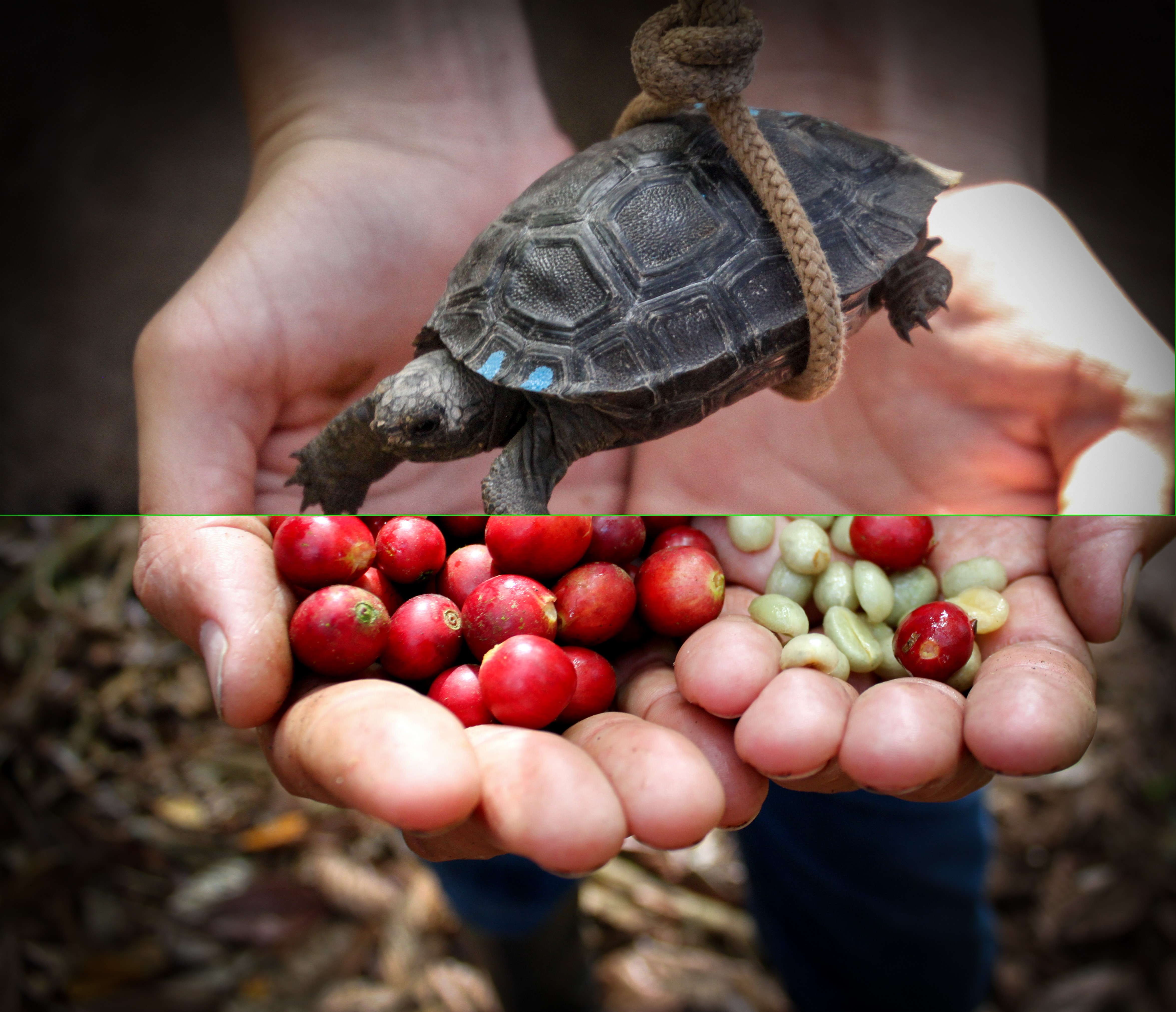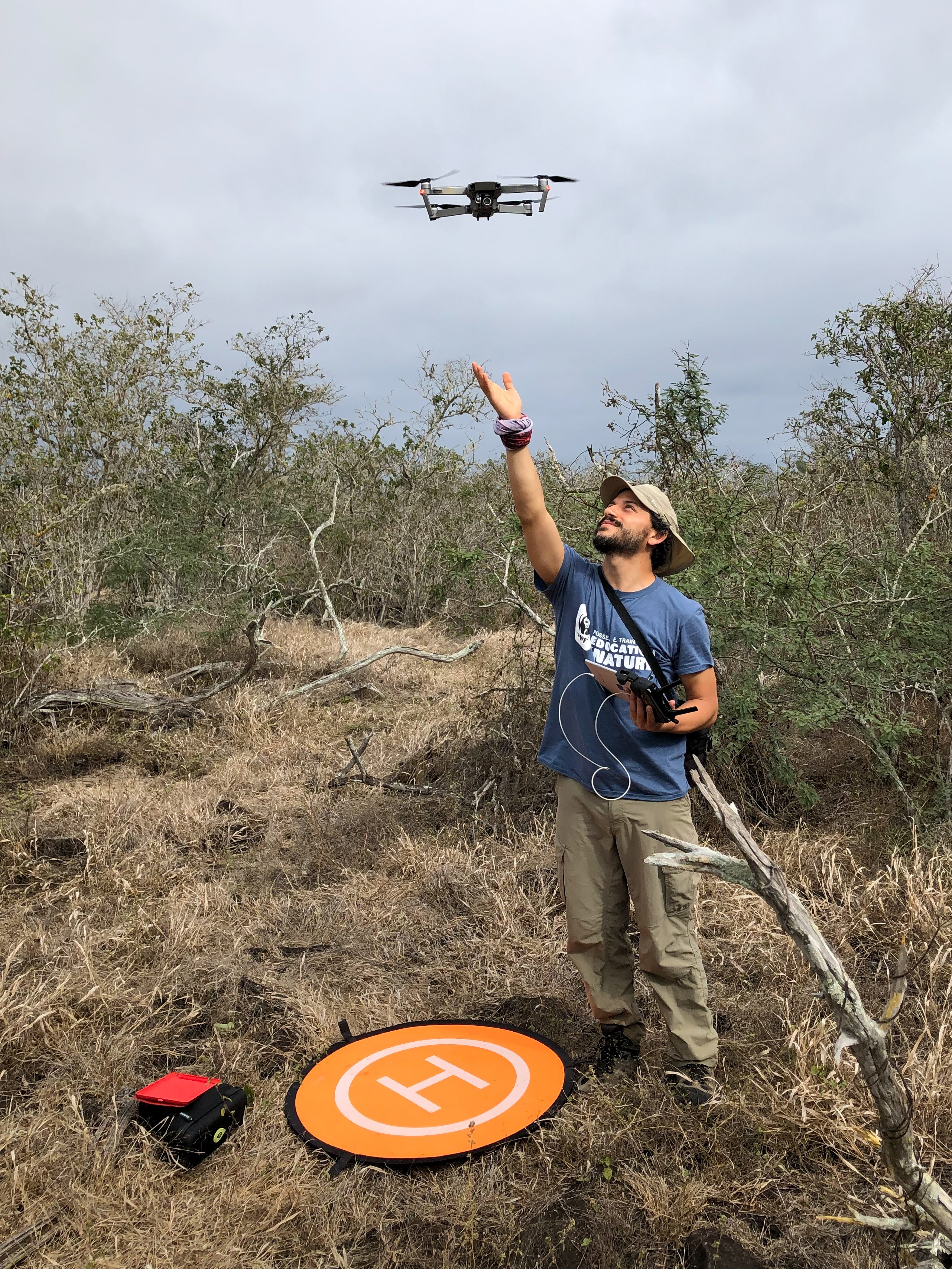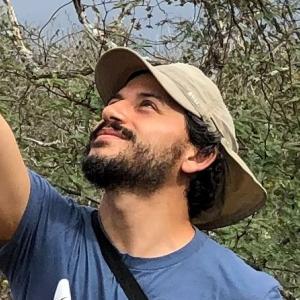Invasive for Whom? Including Farmer Perspectives in the Vision for the Galapagos Islands
Video recording of this talk.
Did you know that there is agriculture in the Galapagos Islands? Agriculture used to be one of Galapagos' main economic drivers and profoundly transformed the landscapes of the humid highlands of its inhabited islands. The humid highlands are the archipelago's most biologically productive and diverse regions, serving as crucial habitats for endemic fauna and flora. They are also the main battleground against the spread of invasive plants. The growing tourism industry spurred migration from farms to urban areas, which has led to invasive species proliferating in abandoned farms, threatening agricultural lands and adjacent protected areas. However, the Galapagos National Park continues to exclude farmers from regional development and conservation plans, fostering an antagonistic relationship with crucial allies for conservation.
This project took a unique mixed-methods approach to highlight farmers' roles in sustaining the islands. Image classification of remotely sensed images was used to generate the first high-resolution map of agricultural areas in the Galapagos. Species distribution models were used to identify giant tortoise habitats in the humid highlands. Ethnographic and qualitative data were used to question traditional narratives about who 'belongs' in the highlands of the Galapagos.
Conservation management plans prioritize endemic organisms as worthy of protection, while introduced organisms are seen as targets for eradication. However, if lawmakers and conservation scientists consider the functions that people, animals, and plants serve in agroecosystems, management plans for the Galapagos highlands are more likely to result in collaboration between agriculture and conservation practitioners. These results reframe the relationship between agriculture and conservation as allies in sustaining people's livelihoods, controlling invasive species' spread, and protecting symbolic flora and fauna in this UNESCO World Heritage Site.


About the Speaker

Francisco Laso holds a Ph.D. in Geography from the University of North Carolina at Chapel Hill and an M.Sc. in Ecology and Evolution from Rijksuniversiteit Groningen (Netherlands) and Université Montpellier II (France). Francisco has worked on conservation and education projects in the Galapagos Islands since 2003. His research uses interdisciplinary methods to explore human-environment interactions in the Galapagos and the Ecuadorian Amazon.
Environmental Speaker Series
The Environmental Speaker Series is hosted by the College of the Environment at Western Washington University.
The Series is free and open to the public. Talks are held each Thursday at 4:30 pm in Academic Instructional Center West room 204 - AW-204. Talks will also be streamed via zoom. Register with the Alumni Association for the zoom link. Paid parking is available in lot C.
Learn more about the Environmental Speaker Series
Subscribe to the Email List